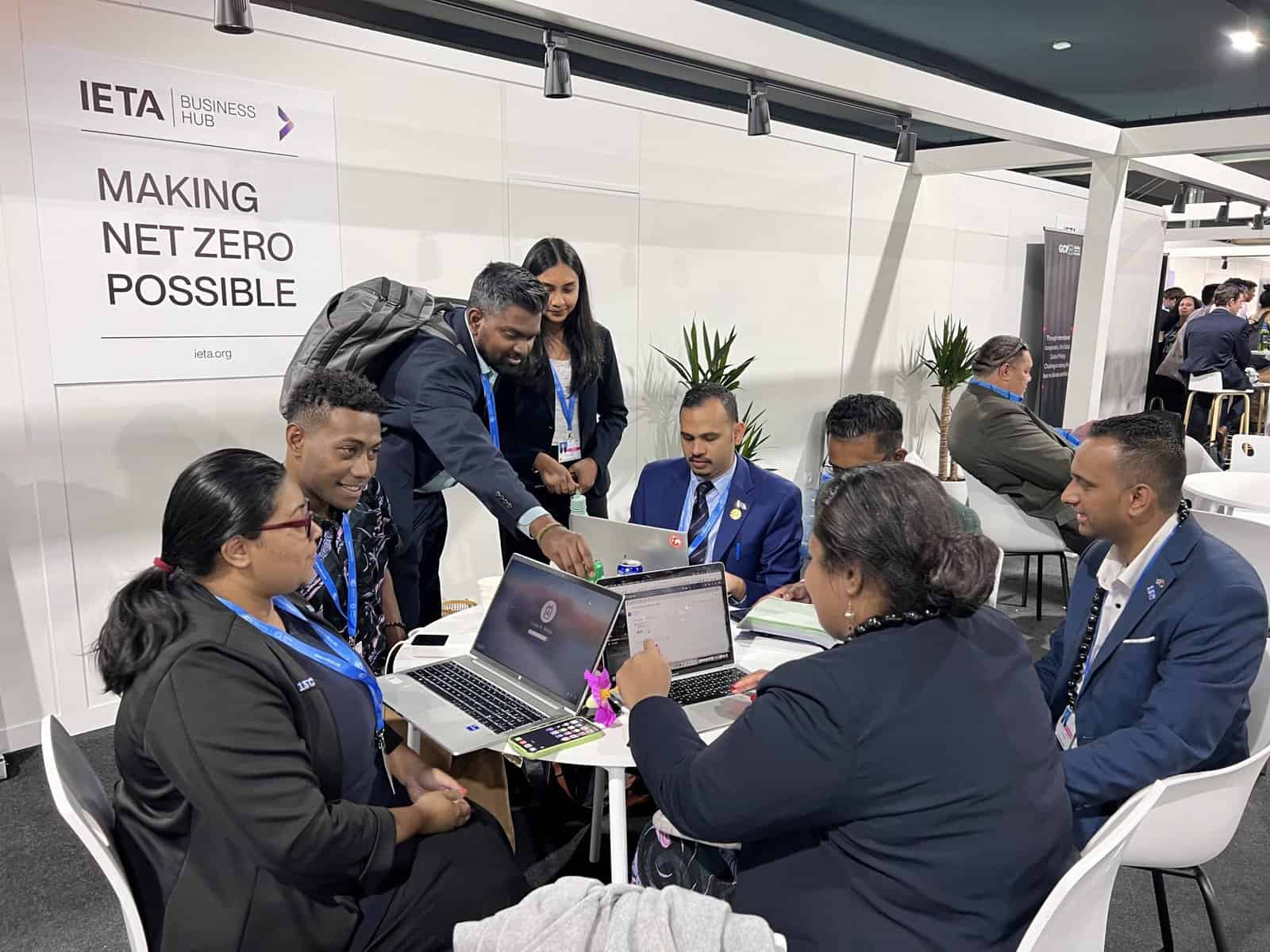The UNFCC Conference of the Parties (COP29) is, in the words of Dr Sivendra Michael, Fiji’s country lead
and Permanent Secretary for the Ministry of Environment and Climate Change, “not an exciting journey.
It is a very tedious process, and it is about remaining focused and trying to take each day as it comes.”
For the Pacific Island nations, this focus is essential as they grapple with climate change, which threatens
their homes, livelihoods, and cultures.
Dr. Michael says attending COP29 requires rigorous preparation, though the dynamic environment demands
flexibility. “We have prepared a lot back home before coming to COP, but as you know, a lot of things
change when coming to COP; new agenda items get introduced,” he says.
This year, Fiji has adopted a strategic “color coding” approach to clarify its priorities and “identify red
lines.” A critical aspect of Fiji’s COP29 strategy is leveraging alliances, particularly with the Group of 77
(G77) and China.
“We are also trying to draw on our relationship with AOSIS, as well as the least developed countries and
others,” Dr Michael says.
To navigate the dense web of discussions at COP, Pacific delegations employ a “divide and conquer”
approach, where they cover multiple topics and collaborate closely.
“There is only so much we can do, and partnering with our other Pacific Island countries helps us cover
items and touch base with each other.”
This collaboration is vital as COP events and negotiations run concurrently across numerous themes. Fiji
alone has dispatched 55 delegates, equipped with technical expertise to support negotiations.
“One of the biggest and most firm decisions the Fiji government made this year was to include partners
like IUCN and Conservation International as part of the delegation,” says Dr Michael.
These experts bring a wealth of global and regional connections, strengthening Fiji’s hand. While the
Pacific’s robust presence at COP underscores their commitment, it also attracts criticism, with some
calling it an inefficient use of resources.
In response, Pacific Islands Forum Secretary General Baron Waqa underscores the significance of these
gatherings. “Every COP is important; we have to be known, to come with a unified voice, with one
amplified voice… so that everyone can hear us.”.
Dr. Michael acknowledges the public’s concerns. “People don’t understand the process, and that’s
fair—but frustrating.”
Given COP’s multilateral nature, results take time; he points to how the Paris Agreement, Article 8 on
Loss and Damage, and even references to fossil fuel have all taken decades to progress.
“We know that there will be a lot of pushback on many agenda items, and the number of delegates is
complementary to being in different rooms to cross-check on gender, mitigation, adaptation, amongst
others,” he says.
Dr. George Carter, the first Pacific Islander on the COP’s scientific council, shares this sentiment. “If they
don’t come, there is no one else that will speak on their behalf. We are at least given a seat at the table…our strong representation will continue to push the message that we are not giving up.”
Ultimately, this COP, referred to by some as the “Finance COP,” is a critical moment for securing
funding across thematic areas, from Loss and Damage to Gender, Adaptation, Mitigation, amongst others.
